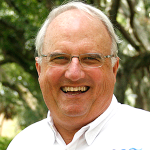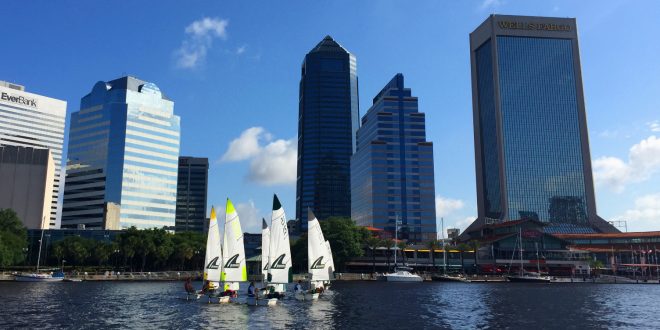
“What can I do to make a difference and help save the St. Johns River?”
It’s a question I often get when I speak to civic groups, garden clubs or classes. The answer is relatively simple, and I always answer the same way: You can take care of your own mess, so to speak, and try to think about what and how you use things like water, energy and fertilizer.
While you may think one person doesn’t make that much of a difference, the reality is that every little bit helps. As one of the thousands of people who do reduce their water consumption, or turn off unnecessary lights, or use a little less fertilizer, we can make a big difference. And we save money, too.
Perhaps the best news is that we can usually do these things and not affect what we see as our quality of life. It is a matter of making conservation part of who we are. Think “reduce, reuse or recycle!”
Another way is to join a group because we can do a lot more together than individually. Be it a civic club, like Kiwanis or Rotary, or a garden club (they are not just for women; men can join, too) or a more focused organization like the St. Johns Riverkeeper or Sierra Club. Each has its own role, and you can be as active as you choose.
I continue to be somewhat surprised at the synergy organizations generate. The Marine Science Research Institute at Jacksonville University is home to not only our undergraduate and graduate marine science programs, but also to the Florida Fish and Wildlife Conservation Commission’s Northeast Field Laboratory and the St. Johns Riverkeeper. We all work together, exchanging ideas and expertise.
Recently, the St. Johns Riverkeeper approached me about re-landscaping the front of the MSRI building with native and drought-tolerant plants. The plants we had in place were native and drought-tolerant, but I had to admit, the landscaping could use a makeover.
Not long after that, I received a phone call from a friend who was in the Late Bloomers Garden Club. It was looking for a project — and did I have any ideas? What a natural fit. So with a little coordination, we enlisted the help of the Jacksonville Zoo and Gardens to assist one of our honor students to design a new landscaping plan for the MSRI.
As it turned out, Jacksonville University’s Charter Day of Service was coming up — scheduled for April 15. It’s a day of community service by JU students, faculty, staff and alumni. So we asked if the MSRI landscaping project could be part of the day’s events. The project was accepted and so, bright and early that Friday morning, about 25 people from JU, the Late Bloomers Garden Club, St. Johns Riverkeeper and Jacksonville Zoo went to work preparing the beds and planting trees, shrubs and flowering perennials. The number of volunteers grew to about 40 before we finished.
As an added bonus, JU has recently been designated a Tree Campus USA university. So in collaboration with Greenscape and JEA, we also planted 12 charter oaks on the campus. It was all a great example of synergy and working together to do something we could not do individually. And the MSRI has a beautiful new landscaped entrance for others to see what can be done with a little effort.
Ask River Life
When I was growing up, I remember riding in a boat in Mill Cove and the wake glowed. We called it Phosphorescence. What was it?
Yes, when it is really dark, you can sometime still see water giving off light when disturbed. Phosphorescence is a property of some materials to give off light from their “exited” state. For instance, some chemicals will give off light after they have been exposed to bright light. Wristwatch dials are a good example. But what you saw was actually bioluminescence, in which living organisms produce light from a biochemical reaction. These are typically microscopic, but some larger animals also glow in the dark. Sea walnuts or comb jellies, along with some deep sea fish and squid, can produce light. Sometimes the light is produced by bacteria contained in small pouches just underneath the skin. All in all, a fascinating process to see.
River Life runs the last Friday of each month in The Florida Times-Union. E-mail A. Quinton White, executive director of Jacksonville University’s Marine Science Research Institute, with questions about our waterways at qwhite@ju.edu. For more on the MSRI, visit ju.edu/msri.
 Wave Magazine Online Jacksonville University News Hub
Wave Magazine Online Jacksonville University News Hub
